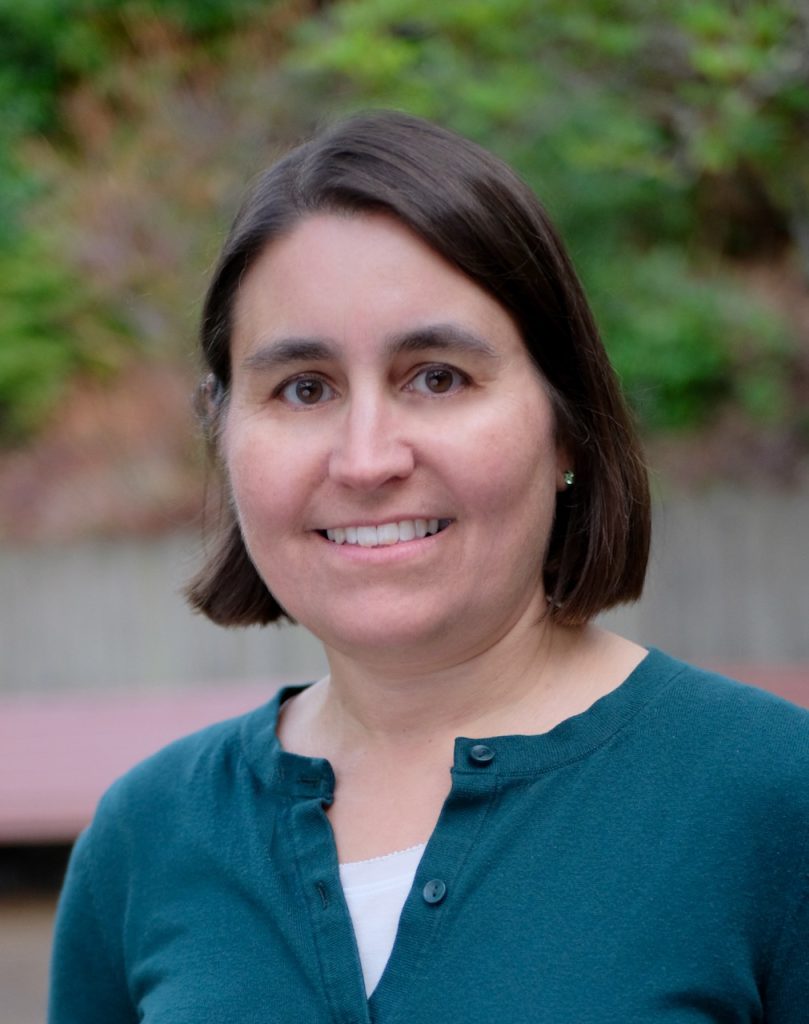How Social Scientists Can Contribute to Online Teaching and Learning: Research, Teaching, and Mentorship
Published by: WCET | 5/14/2021
Tags: No tags found
Published by: WCET | 5/14/2021
Tags: No tags found
Today’s guest authors, Mary Ellen Dello Stritto and Rebecca Thomas from the Ecampus Research Unit with Oregon State University’s Ecampus are here to discuss how social scientists can contribute to online teaching and learning research. Thank you to both of them for today’s post.
Enjoy the read and enjoy your day,
Lindsey Downs, WCET
While remote forms of education have been increasingly discussed during COVID-19, online higher education has been growing for over 15 years (e.g., Seaman, Allen, & Seaman, 2018). This growth is exciting because online education has the potential to increase educational access for diverse groups of adult learners (see table below). Many students may find that completing courses, certificate programs, and degree programs online can make educational attainment more feasible. However, the field of online educational research is still young, and there is a lot of opportunity to contribute to both research and practice in the field.
Students Who May Benefit from Online Education – Online education has the potential to provide educational access to individuals who may find it difficult to attend face-to-face courses.
| Students who have many responsibilities. | Asynchronous online courses allow students to complete course objectives during the hours that they are available, which can make higher education more feasible for students with life commitments such as full-time jobs or childcare responsibilities. Adults who desire career changes, or want to further their education in hopes of increased responsibility or promotion may find it easier to fit online courses into their schedules. Additionally, students who may be taking courses at an institution’s campus may find that combining online and blended courses with campus courses may fit better into their work and family life. |
| Students who live in remote areas. | Since online courses are offered virtually, they can be accessed wherever there is adequate internet access. This aspect of online education can benefit students who live in remote areas, or students who are unable to move or commute for specific courses or programs. |
| Students who travel or who live in multiple locations. | For example, military service personnel whose job responsibilities require moving or living in multiple locations may find online courses to be compatible with their other responsibilities. |
| Students with disabilities or health concerns that make visiting campus difficult. | Some students may find it difficult to drive to campus, travel around campus, or attend class in a face-to-face setting due to disabilities or physical or mental health symptoms. Online education may allow these students to take courses in environments where they function more optimally. |
We, the authors of this piece, are psychologists by training who currently work in the Ecampus Research Unit (ECRU), a research team housed within Oregon State’s University Ecampus, the division for online degrees and programs. Our educational and research experiences have provided us with a unique perspective on the online higher education field, as well as on how social scientists can contribute.
Social scientists (including but not limited to sociologists, historians, and political scientists) are excellent candidates for contributing to future work in online teaching and learning. For example, social scientists are often trained in how to conduct research involving human participants, and the diverse methodologies offered in the social sciences could allow the field to investigate online education through multiple lenses. Many social scientists may be surprised to learn how their skills could contribute to multi-disciplinary teams, as researchers in other fields (e.g. researchers in STEM fields) may desire to conduct educational research, but lack the training in human participant methodologies.
If you are a social scientist who wants to contribute to research, teaching, or mentorship in online education, the following sections describe important considerations.

In addition to social scientists’ expertise in research design with human participants and data analysis, many social scientists are already studying content areas that relate to teaching and learning. For example, social scientists often aim to understand trends and relationships in between humans and society. These areas could potentially be applied to educational environments, as education is situated within a broader culture and society, and teaching depends on interpersonal relationships and communication. Many social scientists who do not consider themselves to be “educational researchers” may find that educational research fits their skill-set and interests. For example, phenomena studied in social psychology such as implicit bias, collaborative group work, and social norms could be applied to understanding online education.
Social scientists filling multiple roles in higher education may find it rewarding to conduct research related to online teaching and learning. Faculty with heavy teaching loads, many of whom may already be teaching online or blended courses, may choose to conduct research within their current courses. Faculty in research-heavy positions may also find that Scholarship of Teaching and Learning (SoTL) research complements their current research agendas. Since so many areas of social science could relate to online teaching and learning, there is opportunity for many in the field to contribute.
The following are areas where additional scholarship would be useful in online higher education. These areas are by no means exhaustive, and since they have been written from our perspective as psychologists, they may not completely align with perspectives offered by all social sciences. However, we hope that these areas can provide a starting point for social scientists to consider online educational research in the context of their expertise and experiences.
While some of these research areas may require original research, other research areas may be able to be addressed by current work that has not yet been applied to online teaching and learning. Social scientists with specific areas of expertise could consider ways that their content areas could improve online education and educational environments. While these research areas run parallel with endeavors of the SoTL more broadly, there has been less research in the context of online teaching and learning, as well as in regard to other modalities of education, such as in blended learning.
Research Area 1: Performance in Online Education
| Example Research Questions | How do students perform in a specific online course or in a specific online program? Why are students performing this way? How well do faculty teach specific online courses, or within specific programs? What are best practices for teaching online and evaluating teaching effectiveness?Are there differences in student performance for the same course or program offered online compared to other modalities? What reasons are there for these differences?What efforts can be made to improve student and faculty performance in an online course or program? |
| Important Considerations | What indicators of student performance to measure (i.e. grades, retention, post-graduation employment data), as well as indicators of faculty performance (e.g. peer evaluations, student evaluations)Whether there is interest in performance for a specific online course, or for a larger online program If this research is about online education in a specific field, it could be useful to consider sub-fields (i.e. comparing performance in a specific content course to a statistics for social sciences course) |
Research Area 2: Educational Experience in Online Education
| Example Research Questions | What factors (e.g. social support, self-compassion) impact student and faculty experiences in online courses and programs? What barriers do certain students and faculty encounter in online courses and programs (e.g. bias, isolation)?How can interventions improve the educational experiences of online students, faculty, and other stakeholders? |
| Important Considerations | Some students and faculty may experience different barriers than others when completing their education. For example, some research has focused on students from traditionally disadvantaged backgrounds. Barriers can be course or program specific, as well as specific to student or faculty demographic variables.Barriers in online learning may or may not be similar to general barriers in higher education. It is important to consider the online education context and how that may interact with other factors. |
Research Area 3: Pedagogy in Online Education
| Example Research Questions | Which pedagogies are effective in online learning?What are the study methods used by online students? If we understand this information, then pedagogy can be designed specifically for the online learning environment.Are there pedagogies that are particularly useful for teaching specific concepts online? |
| Important Considerations | Most Scholarship of Teaching and Learning (SoTL) research has been conducted in face-to-face environments. More research is needed related to online learning.It is possible that some pedagogy established in face-to-face environments could be effective in online environments. However, it is also possible to design pedagogy that utilizes the online medium and aligns with the way that online learners tend to study.Research done in multiple fields could be applied to pedagogy in online education. |
In addition to contributing to the online teaching and learning field through research, social scientists can also contribute to the field as they teach and mentor online students. While more research in this area would be useful, equivalency theory suggests that online students will achieve equivalent learning outcomes to face face-to-face learners if they receive equivalent learning experiences (Simonson, 1999). We recommend that social scientists consider how they can ensure that they are providing equivalent learning experiences to their online students, both in the classroom, as well as outside of the classroom.

There is a lot of quality work that has been done by social scientists that could enhance online teaching and learning research, and additional efforts could be made by faculty when teaching and mentoring online students. We believe that social scientists have the potential to contribute to the online education field in their specific roles, at their institutions.

Mary Ellen Dello Stritto
Director, Ecampus Research Unit
Oregon State University, Ecampus

Rebecca Arlene Thomas
Postdoctoral Scholar Ecampus Research Unit
Oregon State University, Ecampus
Seaman, J. E., Allen, I. E., & Seaman, J. (2018). Grade increase: Tracking distance education in the United States. Babson Survey Research Group.
Simonson, M. (1999). Equivalency theory and distance education. TechTrends, 43(5), 5-8.